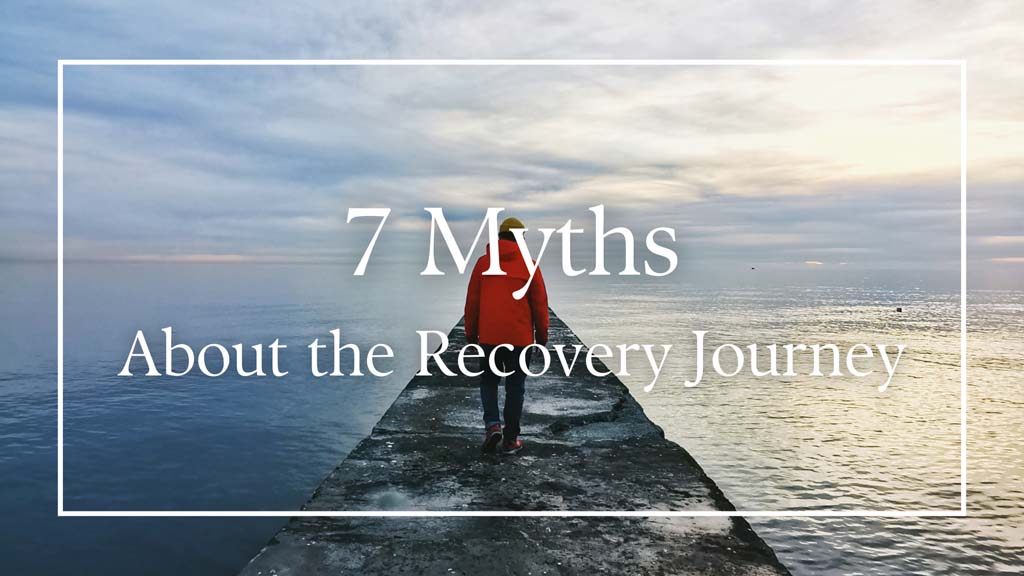
by admin | Jul 5, 2023 | Blog
Deciding to begin one’s recovery journey is one of the most difficult decisions you can encounter in life – it requires courage, strength and determination. Beginning your recovery from substance-use disorder should be a recognized and applauded feat, rather than one shrouded in shame fear. However, due to common misconceptions and fallacies surrounding the recovery process – nurtured by society’s skewed perception of substance dependency and a general sense of fear – these myths can act as obstacles or barriers to seeking well deserved help.

By exploring some of these myths further, the goal is to empower those struggling with substance-use disorder, to see through the perpetuated stigma and take the well-deserved and necessary steps towards a healthier, happier life. By attempting to understand the complexities of the recovery process and its deeply personal nature, the proper support, understanding, and compassion required for life-long recovery can be provided. Through debunking some of these myths, the hope is to create a safe and inclusive space where others feel encouraged to seek the help they deserve.
Demystifying Common Misconceptions

Myth One: Substance-Use Disorder Is A Sign Of Lacking Willpower
You may have heard that substance use disorder is a result of lacking willpower or moral character. It’s important to understand that substance-use disorders are complex conditions influenced by various factors, including genetics, environment, and personal history. Substance use alters the brain’s chemistry and affects decision-making processes. Your recovery involves much more than simply exerting willpower – it requires a multi-faceted approach that incorporates professional support, therapy, and personalized strategies. Overcoming substance use disorder is a daunting process that requires understanding and addressing the underlying causes through comprehensive treatment and a support network rather than through scrutiny and misapprehensions.
Myth Two: You Can Only Recover Once You’ve Hit “Rock-Bottom”
Recovery is not solely reserved for those who have hit rock-bottom. Substance use exists on a spectrum, and you can benefit from seeking help at any stage. Waiting for “rock-bottom” can lead to severe consequences, both physically and emotionally. Recognizing the signs of substance-use disorder and reaching out for support is a proactive approach to regaining control of your life. Early intervention and positive steps toward recovery can prevent further damage to one’s life and improve long-term recovery outcomes. Seeking help early on is a sign of strength and a commitment to one’s personal well-being.
Myth Three: It’s Best to Go It Alone and Quit Cold Turkey
Quitting substance use without professional guidance can be dangerous and ineffective for many individuals. The process of detoxification and withdrawal can be physically and emotionally challenging (if not deadly), and without proper support, the risk of returning to use increases. Seeking professional help, such as therapy, counseling, and support groups, provides a supportive environment crucial for recovery. The presence of trained professionals and a community of individuals with shared experiences can foster understanding, empathy, and growth. A personal recovery coach can offer personalized guidance and assistance using their own life experiences as reference, helping you navigate the challenges of recovery and develop effective coping mechanisms.
Myth Four: Those Working in Recovery Can’t Truly Understand

This myth is a two-part fallacy. Many are under the impression that individuals with personal experience dealing with substance use disorder are incapable of providing the proper care required for recovery. On the other front, there are individuals who feel that professionals without such lived experience are unable to understand and support those in recovery. Neither of these are true. Individuals who have overcome a substance dependency can have a significant impact on the recovery process, due to the insights and empathy unique to their experiences – this can be sense in the work completed by a personal recovery coach. Whereas, professionals working in recovery undergo specialized training and possess a deep understanding of substance use disorders and the recovery process. By integrating different types of support systems within one’s recovery process, the effectiveness and longevity of recovery increase ten-fold.
Myth Five: Medicated-Assisted Treatments Aren’t Really Recovery
Medicated-Assisted Treatments (MAT) can be a vital component of one’s recovery journey. MAT combines medications with therapy and counseling, helping you manage withdrawal symptoms and cravings that may otherwise harm the healing process. These medications, such as methadone, buprenorphine, or naltrexone, work by reducing cravings, blocking the effects of opioids on the body, and stabilizing an individual’s brain chemistry. MAT has been proven to reduce the risk of return to use, increase treatment retention, and improve overall well-being. Discrediting the stigma surrounding MAT is essential for supporting and protecting many individuals’ paths to long-term recovery.
Myth Six: There Is Only One Way To Recover
Your recovery is a highly individualized process, and there is no one-size-fits-all approach. What works for one person may not work for another. Various therapeutic modalities, such as cognitive-behavioral therapy, mindfulness-based practices, holistic approaches, and others, offer diverse pathways to recovery. It is essential to recognize that your recovery is a journey unique to you. However, many seem to believe that once treatment for substance use disorder is completed, that all recovery support ceases to exist. Personal recovery coaches play a significant role in filling the gap between treatment and solidifying one’s sense of long-time recovery. By tailoring strategies and providing guidance specific to your needs, a certified recovery coach can assist in exploring different avenues and empowering one to discover what works best form them during recovery.
Myth Seven: Life Stops Being Fun After Recovery
Another common, and easy to understand, misconception about recovery is that life becomes dull and joyless. On the contrary, recovery opens up the possibility for a fulfilling and meaningful life. By breaking free from the grip of substance use, you can rediscover your passions, develop healthy relationships, and pursue your goals. Recovery is a transformative process that brings newfound joy, purpose, and fulfillment. Personal recovery coaches provide ongoing support in building a fulfilling life after recovery, helping you navigate challenges and develop strategies for personal growth and well-being.
Exploring The Truth

Debunking common myths and misconceptions about the recovery journey is essential for supporting those struggling from substance use disorder and encourage healing process to begin. By promoting a more accurate understanding of substance use recovery, demystifying the process and addressing these fallacies head-on, we can begin to break down the barriers that prevent many from seeking the help they need and deserve. By embracing a diverse pathway to recovery, complete with individualized support and guidance, the possibilities that come with long-time recovery are endless.
As you move forward in your journey, a personal recovery coach can provide invaluable support, guidance, and accountability throughout the recovery process. At Maximum You Coaching, the expertise and personalized approach to each client’s story can make a tremendous difference in achieving and maintaining long-term recovery. Each individual’s recovery journey looks different, and so too will their healing process but with empathetic, qualified guidance you significantly increase your odds of permanent recovery. Embark on this transformative journey with Maximum You Coaching’s recovery coach and receive the tailored assistance you need and finally get back the freedom you deserve.
If you or a loved one is close to finishing or has completed substance use or mental health treatment, Maximum You Coaching can provide continued support. Send an online message for more information or call today to schedule your appointment – both in-person or telephone session available.
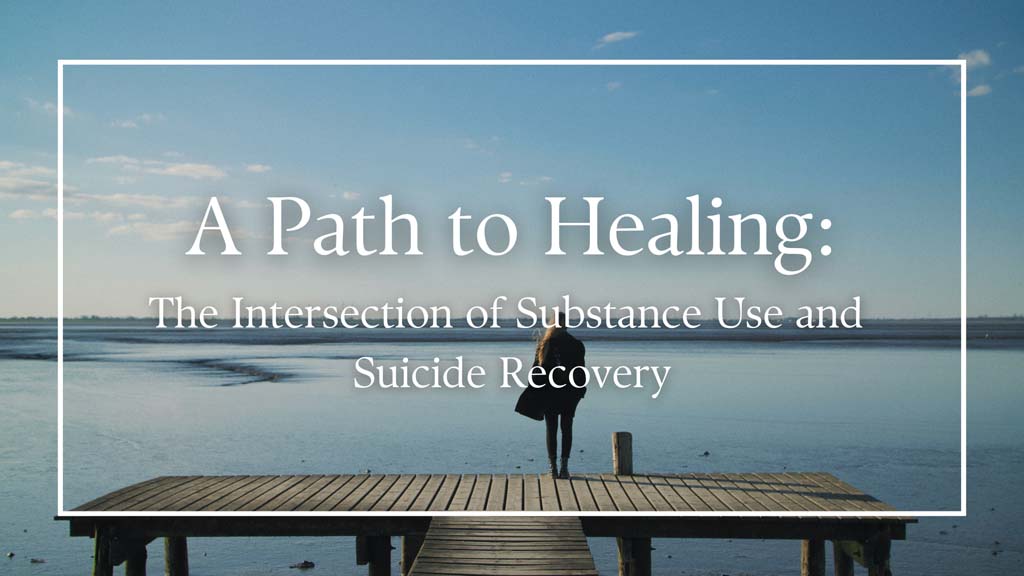
by admin | Jun 20, 2023 | Blog
In the past decade, suicide rates in the United States have skyrocketed and continue to rise, especially among younger and minority populations. In 2021 alone, the US witnessed over 48,000 suicide deaths, averaging roughly one death every eleven minutes, according to suicide statistics published by the Centers for Disease Control and Prevention. However, seeking help is not always as simple as making a call.

The stigma surrounding suicide and substance use in our society can be detrimental, hindering recovery and amplifying the challenges faced by individuals grappling with these issues. Prevailing misconceptions and judgments isolate those in need, preventing them from seeking the help and support they deserve. To overcome these obstacles, shedding light on the importance of tackling stigma head-on and promoting understanding and compassion in substance use and suicide recovery is crucial. By delving into the harmful effects of stigmatization, we can begin to dismantle barriers and foster an environment that supports the well-being and recovery journey of those overcoming substance use, suicidal ideations, or both.
Substance Use and Suicide: A Complex Connection
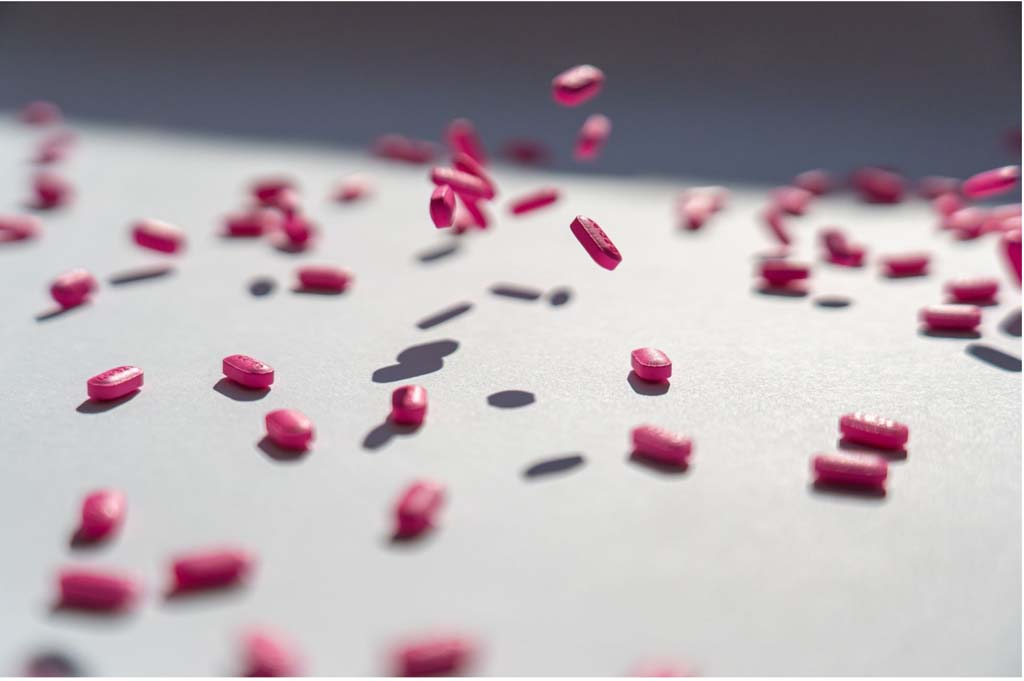
Substance use and suicide are intertwined in a multifaceted relationship that requires care and understanding. Research consistently reveals a correlation between substance use and an increased risk of suicidal ideations, as well as substance use among those suffering from suicidal behaviors. It is crucial to recognize the impact that substance misuse can have on mental health, exacerbating feelings of hopelessness and despair while increasing the likelihood of reckless and dangerous actions.
Recovering from a substance use disorder is more than a matter of willpower and perseverance. Substance misuse can alter the brain’s chemistry, leading to imbalances in mood and cognition that must be addressed for healing to occur. While there is no direct correlation between substance use and suicidal ideations, they are often linked diagnoses. If an individual relies on substances as coping mechanisms or a means of escape, it can further contribute to emotional distress and an increased vulnerability to suicidal thoughts. This intricate connection highlights the need for comprehensive support systems that address both an individual’s substance use and mental health issues concurrently.
Moreover, substance misuse can intensify the sense of isolation and shame often experienced by individuals at the beginning or during their recovery journey. The negative consequences of substance abuse, combined with the social stigma attached to it, can create a vicious cycle that perpetuates feelings of hopelessness, guilt, and abandonment. By addressing the complex interplay between substance use and suicide, we can pave the way for meaningful conversations, compassionate understanding, and comprehensive approaches to healing and recovery, while also developing effective prevention strategies.
Overcoming Suicidal Ideations: Navigating the Challenges

Overcoming suicidal ideations is a complex and challenging journey that requires immense strength, resilience, and support. One of the primary challenges is the emotional turmoil experienced by those struggling. Feelings of despair, loneliness, and hopelessness can be overwhelming, making it difficult to envision a future free from pain. As a result, individuals may turn to substance use as a means to ease their suffering. Providing a safe and non-judgmental space where individuals can express their emotions, seek help, and receive the necessary support is crucial.
Societal factors also play a significant role in perpetuating suicidal ideations and limiting access to support. Stigma, shame, guilt, and embarrassment often prevent individuals from reaching out for help, fearing judgment, dismissal, and rejection. The fear of being labeled as “damaged” or misunderstood further isolates those struggling and strengthens their resolve to avoid seeking professional assistance. Once isolated and feeling villainized by society, many individuals dealing with suicidal behaviors may resort to substance use as a means of relief. Studies show that individuals with a substance use disorder are ten to fourteen times more likely to die by suicide, depending on the substance in question. Regardless of whether individuals turn to substance use as a response to their ideations or their suicidal ideations have led to substance use, the emotional and psychological toll is immense.
However, fostering a supportive environment that promotes empathy and understanding allows us to dispel misconceptions and reduce stigma surrounding mental health, substance use, and suicidal ideations. By addressing societal factors that contribute to suicidal ideations, encouraging open conversations, and providing compassionate support, individuals will be empowered to seek the help they need without fear of judgment or shame. As a society, it is crucial to work towards breaking barriers and providing necessary tools and nonjudgmental support for individuals on their journey towards overcoming suicidal ideations.
Fostering Understanding and Compassion in Substance Use Recovery

Fostering understanding and compassion towards individuals in substance use recovery is crucial. By addressing societal stigma and advocating for empathy and supportive attitudes, especially when someone reveals their struggles with suicidal behaviors, we can create an environment that benefits the healing process. Some practicable tips for helping a loved one who is struggling include educating oneself about substance use disorders, actively listening without judgment, and validating their experiences. Additionally, reframing language and using person-first language when responding to a request for help can reduce some of the perceived stigmatization. It’s essential to keep in mind that this may not be the first time someone has opened up about their struggles with substance use and suicide, and depending on their previous experiences, opening up can feel nearly impossible. By openly fostering empathy and compassion in our personal relationships, we can begin to break down barriers, reduce stigma, and create a more supportive society for individuals in recovery.
As we strive to foster understanding and compassion towards individuals in substance use recovery and respond to their struggles with empathy, it’s important to recognize the role of personal recovery coaches in providing crucial support outside of the home. Personal recovery coaches play a crucial role in supporting individuals overcoming suicidal ideations and substance use. They provide specialized guidance, compassionate support, and a safe space for expression. At Maximum You Coaching, individuals are empowered to develop coping strategies, build resilience while healing, and find hope for the future. Through thoughtful collaboration, Maximum You Coaching will assist in creating a personalized recovery plan, offering accountability, and helping clients make positive changes in their lives and futures. Beyond the general guidance a personal recovery coach provides, Maximum You’s coach will provide tangible tools for managing triggers and support in rebuilding and enjoying a fulfilling life. When seeking professional assistance, allowing a personal recovery coach to provide additional support on the path to healing substantially increases the chances for lifelong recovery. By addressing stigma, promoting understanding, and embracing compassion, an environment is created that fosters healing and offers hope to those struggling with substance use and suicidal ideations. Remember, you are not alone in your journey—recovery is possible, and your life holds immeasurable value.
If you or someone you know is in immediate danger due to suicidal thoughts, call 911.
If you or a loved one is close to finishing or has completed substance abuse or mental health treatment, Maximum You Coaching can provide continued support. Send an online message for more information or call today to schedule your appointment – both in-person or telephone session available.
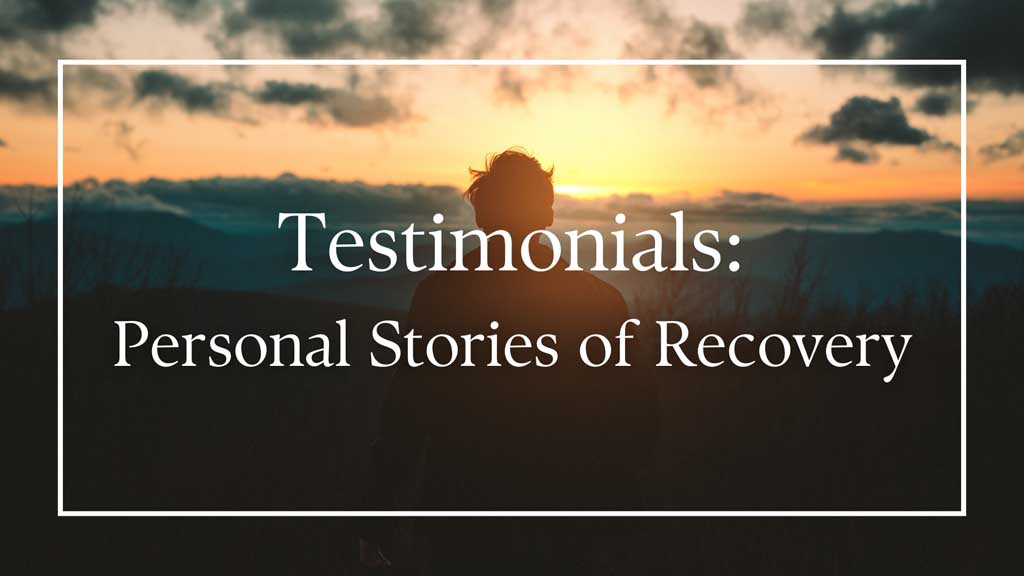
by admin | Jun 3, 2023 | Blog
Embarking on the journey of recovery can be a daunting step in life. Despite the initial determination and hope that comes with taking that first leap, one’s resolve may falter over time due to the struggles often faced. However, a certified recovery coach can provide you with the multifaceted support, guidance, compassion and human connection necessary for successful lifelong recovery once treatment concludes. As you navigate your own recovery journey, allow a recovery coach to be your invaluable ally and provide you with the roadmap to life-long recovery. With a combination of dedicated assistance, tangible tools and strategies, a sense of accountability and other benefits, Maximum You Coaching has helped a diverse range of individuals remain solidly on the path of recovery. Beyond this point, you will find four stories of strength, triumph and transformation – reflective of the profound difference Maximum You Coaching Services can have in one’s quest to a substance free life.

Adam L.
I had the pleasure of working with Paul (Maximum You Coaching) as a client in 2019 through 2021 throughout the integral baby steps of early recovery from substance use and mental health disorders. Early recovery can be a difficult and exciting time that is filled with new experiences, difficult transitions, grief, triumphs, pain, love, loss, and personal gains, which can be hard to navigate on your own. Paul Yearby was the consistent man throughout every transition I had throughout my early recovery and really provided the stability, friendship, leadership, guidance and support I needed during that time in my life. The last time I went to treatment at River Ridge was the first time that I had the pleasure of working with a Recovery Coach, and it was a game changer for me. Paul is a genuine, caring, giving, wise and gifted leader that has a GOD given ability to connect with everyone he meets. Paul Yearby lives a purpose driven life, which provides him with the integrity, passion, and authenticity that people wanting to make changes need in a supportive friend. If you are looking for support, Paul embodies the helping profession with assets such as friendship, genuine care, consistency, compassion, cultural competency, patience, and person-centered care with the best of them. I am grateful for my time with Paul in early recovery and feel fortunate to be able to continue to work with him now as a professional and get to call him a friend.
Allie K.
Paul (Maximum You Coaching) has been an absolute blessing in my life. I would not be where I am without him. When I met Paul, I was suffering legally and emotionally from my substance abuse. I had no direction, confidence, or semblance of hope for long term recovery. Since then, Paul has not only explained to me what true recovery looks and feels like, he has shown me through his own actions. Our work together has allowed me to reconsider my beliefs about substance abuse recovery; cope with my emotions in a safe, healthy space; and, most life-changing for me, begin to actually feel like I am worthy of the life I deserve. He has been the voice of constant encouragement and non-judgment that pushes through the noise when I am struggling. I am so endlessly grateful for Paul and the way he has changed my life in ways I could not even fathom. Our sessions together are fun, emotional, powerful, and thought-provoking. I have never met someone who believes in me so unconditionally, and who is so genuine in his passion for helping others. Now, I am almost a year and a half sober. I am in school pursuing the long-term goals I was too afraid to chase. I wake up every day and feel that I am enough. I thank Paul for all of that. He is an integral part in my ability to believe in and chase my potential.
Christina R.
The minute I met Paul Yearby (Maximum You Coaching) he immediately spoke truths that I had never fully processed until the words came from him. Paul has brought more light, more wisdom, and more truth to my life than I have ever experienced throughout my time in recovery. Paul has taken the time to walk through the 8 dimensions of wellness that have allowed me to have a balanced and well rounded lifestyle that provides me with the ingredients I need for my life. He’s someone you can fully trust and know that with his life experience and redemption that he will give you honest answers and fully accept you as you are. One of the best decisions I ever made was deciding to enter my recovery and my new life’s journey with Paul Yearby as not only my coach, but my friend.
Jack F.
Paul Yearby (Maximum You Coaching) is a tremendous guy. He combines an absolute command of the theory and practice of recovery with a casual warmth, confidence and an understanding ear. His wisdom is invaluable. I can say with 100p certainty that I would not have achieved my goals for my early recovery nearly as well if I had not been working with Paul. I would recommend his services to anyone who is thinking about leaving dysfunction and madness behind in favor of acceptance, love and a better understanding of the human mind. Change your life for the better and work with Paul today!
Embrace The Healing Process

At Maximum You Coaching, years of experience and a deep understanding of the recovery journey – both professionally and personally – have resulted in numerous stories of success. With a commitment to providing compassionate guidance and unwavering support that aligns with your unique desires, needs, and beliefs, long-term recovery is no longer a dream but a reality. Navigate the complexities surrounding the balancing of relationships and the recovery journey in a space where you are enlightened and encouraged by a certified professional who is in long-term recovery themselves. Each individual’s recovery journey looks different, and so too will their healing process but with empathetic, qualified guidance you significantly increase your odds of permanent recovery. Embark on this transformative journey with Maximum You Coaching’s recovery coach and receive the tailored assistance you need and finally get back the freedom you deserve.
If you or a loved one is close to finishing or has completed substance abuse or mental health treatment, Maximum You Coaching can provide continued support. Send an online message for more information or call today to schedule your appointment – both in-person or telephone sessions available.
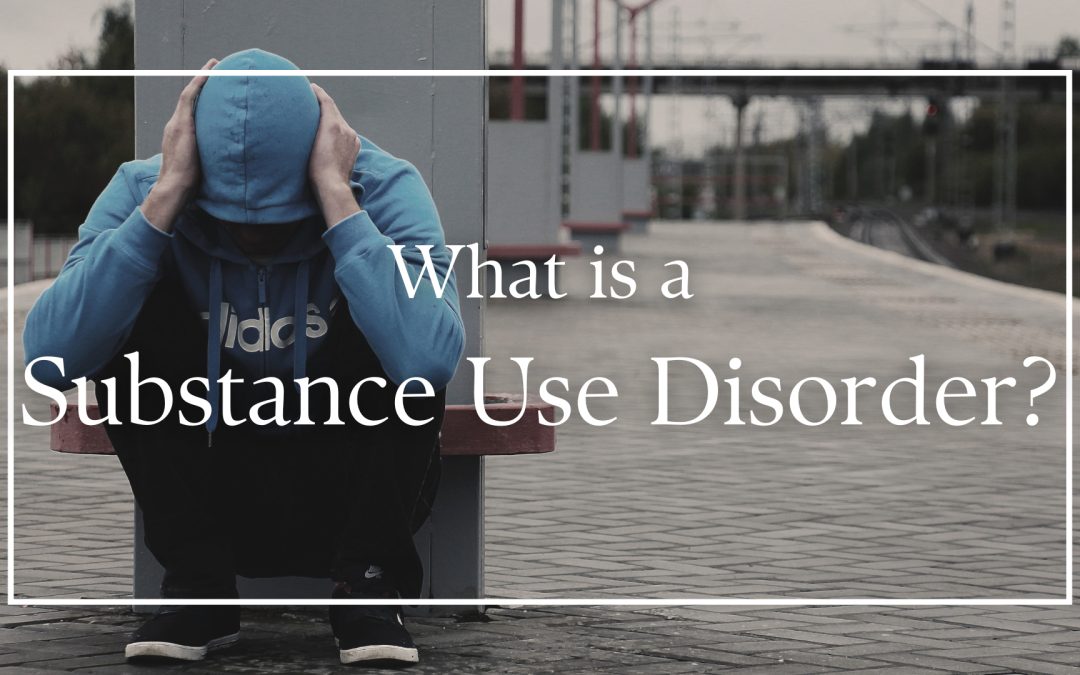
by admin | May 18, 2023 | Blog
According to the CDC, substance use disorders “are treatable, chronic diseases characterized by a problematic pattern of use of a substance or substances” which negatively affect most (if not all) aspects of a person’s life from physical and mental health to social functionality to everyday quality of life. According to the 2021 National Survey on Drug Use and Health (NSDUH), over 45 million Americans (aged twelve years or older) struggle with a substance use disorder – this means roughly one out of every seven people in the country have been diagnosed with an SUD. This is significant in revealing that regardless of age, gender, medical history, income, background or lived experiences may be, substance use disorders can affect anyone. Substance use and dependency are prevalent issues worldwide which, while a disheartening fact, means that those struggling are not alone.

Recovering from a substance use disorder is more than a simple issue of willpower and perseverance, but rather rewiring a brain that has been programed to need a substance regardless of what harm or adversities it may bring to its sufferer. And as different as the particular substance used may be when compared to the next, as are the igniting factors that first led someone to first use and the triggers that kept them returning to use. While no single aspect or event causes a substance use disorder, there are factors in a person’s life that can incite the development of one. This can include biological factors like genetics, mental disorders, physical alignments and age, as well as environmental aspects like a family history of substance dependency, trauma, stress, peer pressure and other cultural factors. Regardless of what substance is in question or the reasons that led to its misuse, there are many destructive consequences to continued substance use, which is why recovery is the only option if those suffering want to regain control over their lives.
Symptoms And Risks Of Substance Misuse

Substance use disorders span a wide breath of categories, and fluctuate in levels of severity. While the substance in question can vary greatly, from alcohol to other drugs (illicit or not) as well as activities like excessive online shopping, there are commonalities within the life-altering compulsions and indicators associated with the disorder. This lengthy and diverse list of behaviors and symptoms, indicative of someone struggling with a substance use disorder, include some of the following:
- The Inability to Control Use
- Prioritizing locating and using the substance above everything else in life
- Using more of the substance than one intended
- Being unable to reduce one’s use of the substance despite wanting to and/or continually trying to
- Spending a significant time recuperating from the aftereffects of the substance
- Social Difficulties
- Issues at home, work, or school due to one’s substance use
- Continuing use of the substance despite it causing strain on their relationships
- Reducing or discontinuing hobbies and activities as a result of substance use
- Having less money than usual with no explanation
- Avoiding old social circles and predominantly only associating with new groups, typically unknown to family and friends
- Engaging in Risky Behavior
- Using the substance even though it is causing or aggravating physical or mental health conditions
- Driving or operating machinery under the influence of substances
- Physical Indicators
- Straining to concentrate or remember things
- Frequent mood swings
- Anxiety and/or depression
- Developing a tolerance and requiring more of the substance each time in order to achieve the same effect
- Physically needing the substance in order to function in everyday life and prevent withdrawal
- Experiencing withdrawal symptoms while not using the substance
Types of Substances that can be misused

There is no singular reason as to why an individual becomes dependent on a substance and it is a predicament no one is safe from. For some, there may be genetic warning signs of substance use disorder that exist within your family tree, such a predisposition to alcoholism. Whereas others become vulnerable to substance misuse due to environmental or mental factors. But regardless of what led to the initial use, substance dependance manipulates each individual’s brain in a similar manner. By directly or indirectly targeting the brain’s dopamine (a neurotransmitter responsible for monitoring and regulating a person’s emotions, movement, reasoning, motivations and more by communicating messages between the nerve cells in your brain and body) receptors. When we act on beneficial behaviors, like exercising or eating a satisfying meal when hungry, our brains release a flush of dopamine, resulting in feelings happiness and enthusiasm, in order to reward and reinforcement said behaviors.
Substance use results in feelings of pleasure by causing an individual’s brain signals to misfire and release large quantities of dopamine into their system and consequently, fortify the habit. Once a substance use disorder takes hold, the brain’s chemistry is altered to crave the same sensations as were experience while under the influence or misusing the substance. Because of this unconscious desire for more of that “feel-good” hormone, substance use disorder is not limited to more conventional mediums like alcohol and tobacco but rather anything that causes pleasure and is subsequently used in excess. There is a large assortment of substances that can be misused, including but not limited to:
- Alcohol
- Cannabis
- Opiates and Narcotics
- Nicotine
- Illicit Drugs (such as methamphetamines, heroin, cocaine, psilocybin, LSD and others)
- Prescriptions medications (anxiolytics for managing anxiety and amphetamines intended to manage ADD are among the some of the most misused)
- Inhalants
- Caffeine
- Pornography
- Compulsive Buying
- Gambling
- Technology/Gaming/Internet
While several of these substances’ intended purposes are far from nefarious, when used often or in excess, habits can be formed. And from habits, substance dependency can develop. However, once struggling with substance use disorder, whether it be drug misuse, unrestrained gambling, a fixation with pornography, or something else, those suffering often feel as if they’ve hit the end of their road. But the story hasn’t concluded simply because of substance dependency – recovery is always possible.
Overcoming a Substance Use Disorder

Walking the road to recovery can be an isolating one, if not careful. It’s hard to overcome the feelings of guilt and shame that are often symptoms accompanying the recovery process. Once a recovering individual is operating with a clear mind, many feel they are unworthy of empathetic guidance as they navigate this grueling path. However, recovery is a life-long journey and in order to avoid the risk of returning to use, a network of multifaceted support and compassionate connections is necessary. This is where a certified recovery coach comes in. Allow a dedicated recovery coach, who understands the complexities of substance misuse and the impact it can have on a person’s life, mind and relationships – to help you realize and reach your maximum potential in life.
With years working in the field of recovery support in addition to lived experience, Maximum You Coaching provides clients with passionate support and substantial guidance tailored to your particular wants, needs and beliefs. Navigate the complexities surrounding the balancing of relationships and the recovery journey in a space where you are enlightened and encouraged by a certified professional who is in long-term recovery themselves. At Maximum You Coaching, you can get the help you need to significantly increase your odds for permanent recovery and finally get your freedom back.
If you or a loved one is close to finishing or has completed substance abuse or mental health treatment, Maximum You Coaching can provide continued support. Send an online message for more information or call today to schedule your appointment – both in-person or telephone session available.
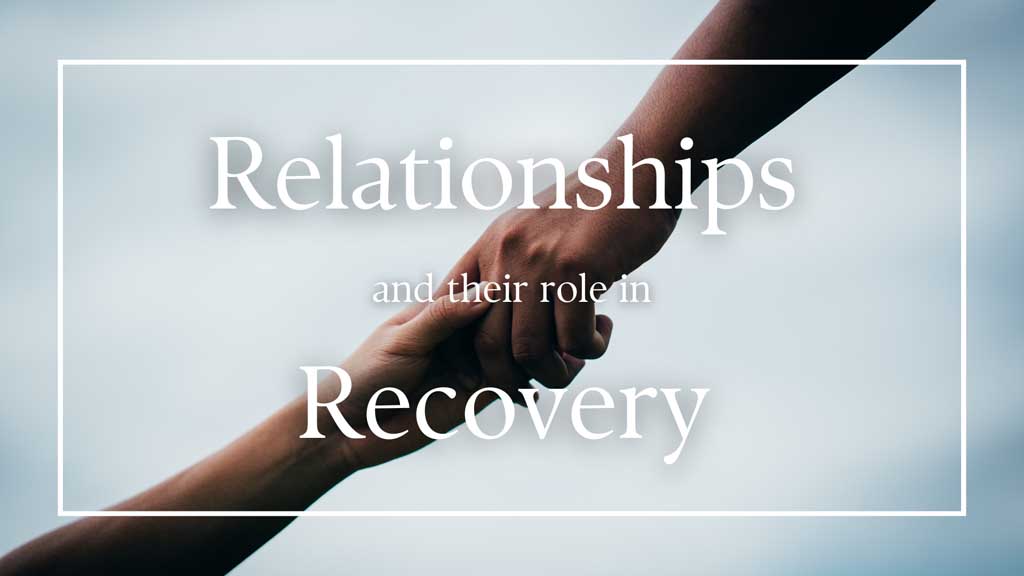
by admin | May 2, 2023 | Blog
Relationships, whether romantic, familial, friendly or professional, are crucial to the human experience and responsible for giving our lives purpose. Love has a profound effect on our mental and physical states – romantic love might make our hearts race gleefully and offer us with a sense of security while the loss of a family member or friend can evoke excruciating pain. Without these positive, supportive connections in our lives, including maintaining a healthy relationship with ourselves, the average day can become bleak, directionless and isolated. Meaningful bonds are necessary for living our best lives possible.

One of the most devastating facets of substance use disorder is the harm it causes to the relationships with family, romantic partners, friends, or colleagues in our lives. And while recovery might be an isolating journey at the start, healing old and nurturing new healthy relationships can provide the emotional support needed in order to flourish during long-term recovery. Strong, positive support and patience from the right people can help recovering substance users walk away from toxic, triggering relationships and habits as they make their way towards a more balanced life. However, navigating relationships can be difficult for both those in recovery as well as those who care for the recoveree. Though with the non-biased and compassionate guidance from a professional recovery coach, mending seemingly burnt bridges and thriving during recovery, is more than possible.
Human Connection And Recovery
It is often said that the opposite of substance dependency is not recovery but rather human connection. While toxic relationships or crushing loneliness may be what initiated someone’s substance dependency – when considering long-term recovery, research suggests that having healthy, supportive relationships dramatically improve success rates. According to the SAMHSA, one of the four major dimensions of recovery is community which entails having relationships and social networks that provide support, friendship, love and hope. Humans are social creatures, even self-proclaimed introverts need emotional connection on some level, and without those bonds, our mental, emotional and physical health suffer. No where is this truer than during recovery.
Overcoming a substance use disorder requires professional, certified attention from someone with the experience and empathy necessary to help. When expert guidance is joined by nurturing relationships, the recoveree is supplied with the safety and stability necessary for this journey to be successful. For loved-ones of those in recovery, learning how best to be supportive while avoiding triggering or enabling behaviors is invaluable in creating a strong foundation on which the recoveree can build their new life upon. For many recoverees, involving their network of support in their recovery journey and learning how to better communicate with the guidance of a certified relationship recovery coach, is the key to life-long-recovery.
Not All Bonds Are Created Equal

The physical challenges of breaking a detrimental cycle of substance use can be monumental and draining but are only one aspect of the path to recovery. The mental and emotional struggles that must be circumnavigated as well, can be even longer-lasting and entirely all-consuming. This is especially true for individuals whose substance dependency is tied to a particular social circle or is triggered by unhealthy family dynamics. Removing these toxic relationships from the equation is necessary to break the cycle and prevent a return to use. However, when these bonds are severed, the recoveree is often left adrift and looking for any kind of connection as a substitute. Unfortunately, this is typically the point during the recovery journey in which trauma bonds and codependency can develop with others, and why the myth that those recovering should go it alone, exists. In fact, healthy relationships and strong bonds are consider vital to the success of recovery, but it can be hard to know what a healthy relationship looks like while healing. With the guidance of a professional relationship coach who specializes in substance use disorders, someone recovering can learn how to implement personal boundaries while forming more meaningful connections. Recovery should never be a solitary journey but it must also be a healing venture for all those involved, and toxic relationships will do nothing but hinder or reverse progress.
Relationships and Recovery Coaching

Whether an individual is a recoveree – hoping to reconcile past bonds and form new connections – or the loved one of someone in the process of recovery, learning how to navigate the healing process can be a daunting one. There can be feelings of failure, hopelessness, abandonment, resentment, confusion, blame and more from both parties that must be addressed and worked through for those connections to be remedied. Such emotions being allowed to run rampant could potentially harm the recoveree’s relationship with their own mental health, dramatically increase the risk of isolating behaviors and a return to use. However, a certified recovery coach who understands the complexities of relationships and the impact substance use disorders can have on them, can provide the necessary support when facing these challenges.
At Maximum You Coaching, both persons in recovery as well as their loved ones will find the space they need in order to feel heard, seen, supported, guided and valued. Through nonjudgmental and compassionate support from a certified professional, who is in long-term recovery themselves, the recovery journey and the complexities of maintaining healthy relationships, can be balanced. Whether partners, family, friends or coworkers, there are techniques and strategies (such as developing healthy but firm boundaries with one another and improving awareness of triggering actions and behaviors) that need incorporating in order to allow any mending to occur. Using tangible tools, guidelines and techniques, negative emotions can be reframed and bonds allowed to mend – though tensions may rise before healing can really begin. Relationships are hard, recovery is hard and learning how to healthily navigate the two simultaneously is even harder. Nevertheless, the effort is worth exerting and Maximum You Coaching is here to help. With strong, healthy and loving relationships the odds for long-term recovery increase substantially and life can finally be free to flourish.
If you or a loved one is close to finishing or has completed substance abuse or mental health treatment, Maximum You Coaching can provide continued support. Send an online message for more information or call today to schedule your appointment – both in-person or telephone session available.
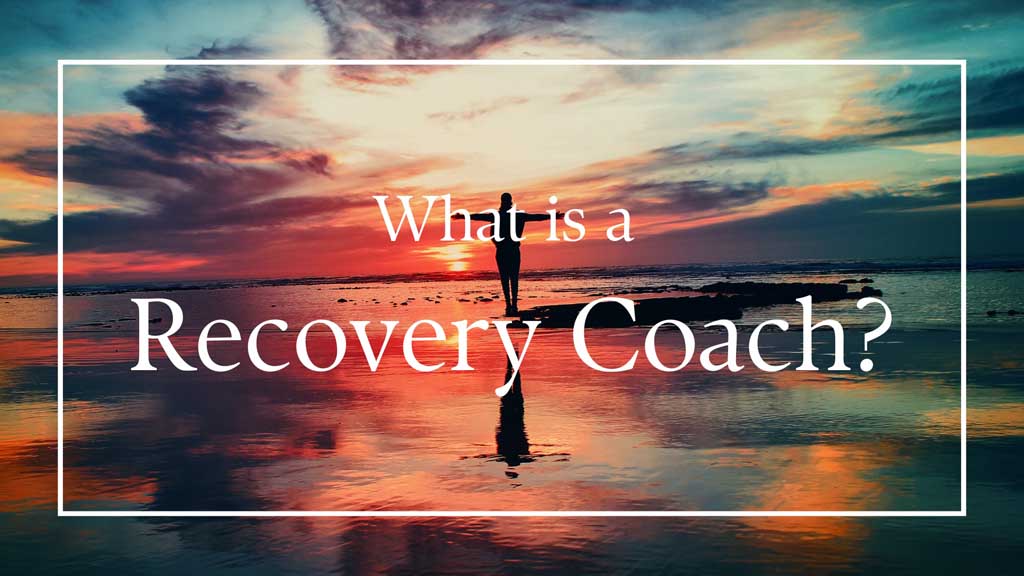
by admin | Apr 20, 2023 | Blog
What Is A Recovery Coach?
Overcoming and recovering from substance dependence is one of the most difficult struggles a person can experience in their life. Substance abuse disorders are chronic but treatable diseases that originates and are influenced by the convoluted innerworkings of “brain circuits, genetics, the environment, and an individual’s life experiences.” This, unfortunately, means there is no simple solution for overcoming a substance abuse disorder nor a determinable completion date on one’s recovery (more…)























